Sign In
Welcome to AI Checker Sign in to continue your exploration of our platform with all its exciting features.
Forgot Password?
Don’t have an account ? Sign Up
Forgot Password
We'll Send You An Email To Reset Your Password.
Back to Login
Sign Up
Embrace the Future with AI Checker Sign up now and let's rewrite the possibilities together.
Already have an account? Sign In
Enter OTP
We'll send you an email to reset your password.
Back to Login
Enter OTP
We'll send you an OTP on your registered email address.
Back to Login
Confirm Password
Please enter your new password.
How do AI Detectors Work
 Nathan Porter
Nathan Porter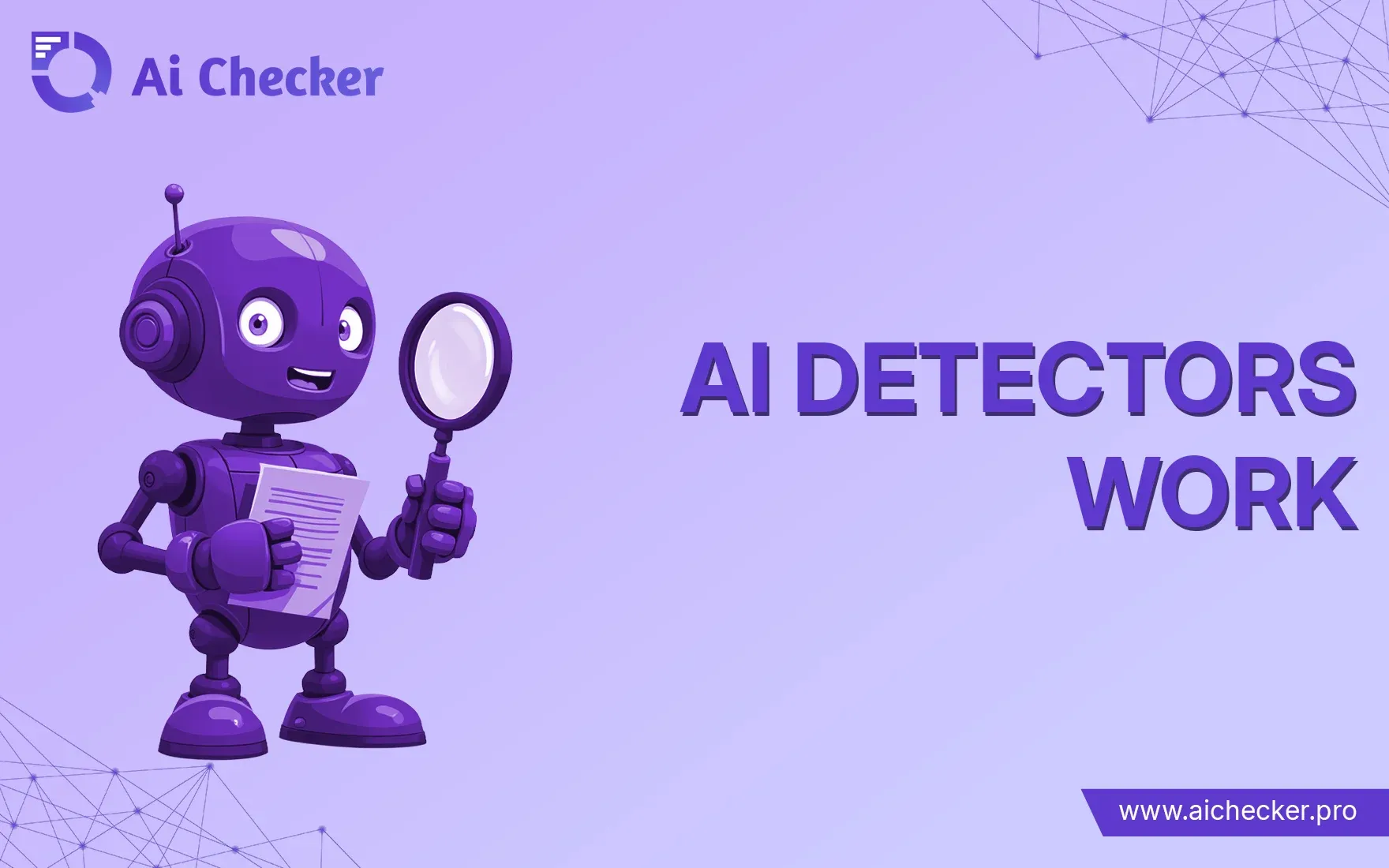
TABLE OF CONTENTS
Introduction
Quick Summary
What is an AI content detector?
Why do people use AI checkers?
How accurate are AI content detectors?
4 ways AI content detection works
Are AI writing detectors reliable?
Key technologies behind AI content detection
Detecting AI writing manually
5 Examples of the best AI checkers
What is the future of AI checker tools?
Conclusion
FAQs
Introduction
As GenAI has become everyone’s go-to for generating content for creative, as well as educational purposes, the need to limit the use of AI has also emerged.
It is imperative to maintain integrity of any individual, or brand, and that is best achieved with authentic and accurate content. Here’s where AI falls short, and AI detector tools come into play. AI detection ensures that the content pieces are original and authentic by detecting any traces of AI generated content.
These tools are highly beneficial for people from multiple arenas of life, these include educators and students, content creators, digital marketing professionals, and businesses, too!
Quick Summary
In this blog, you’ll understand how is AI detected, and how it benefits creators and educators, how they work, and how much you can depend on them.
But really, do AI detectors work? Read ahead to also know about five AI content detectors that are absolutely smashing the game, and why you should have them in your arsenal!
What is an AI content detector?
Essentially, an AI content detector is a tool that is used by content creators and professionals to help ensure the authenticity and accuracy of any content by tracing out parts that may have been created by GenAI.
The objective of using AI content detectors is to ensure that integrity of any brand or individual is maintained, and the authenticity of the same is translated via content.
Why do people use AI checkers?
People use AI checkers to enhance decision-making by automating error detection and providing insights. AI-powered tools ensure accuracy, save time, and improve efficiency, especially in tasks like grammar correction, code review, and document validation.
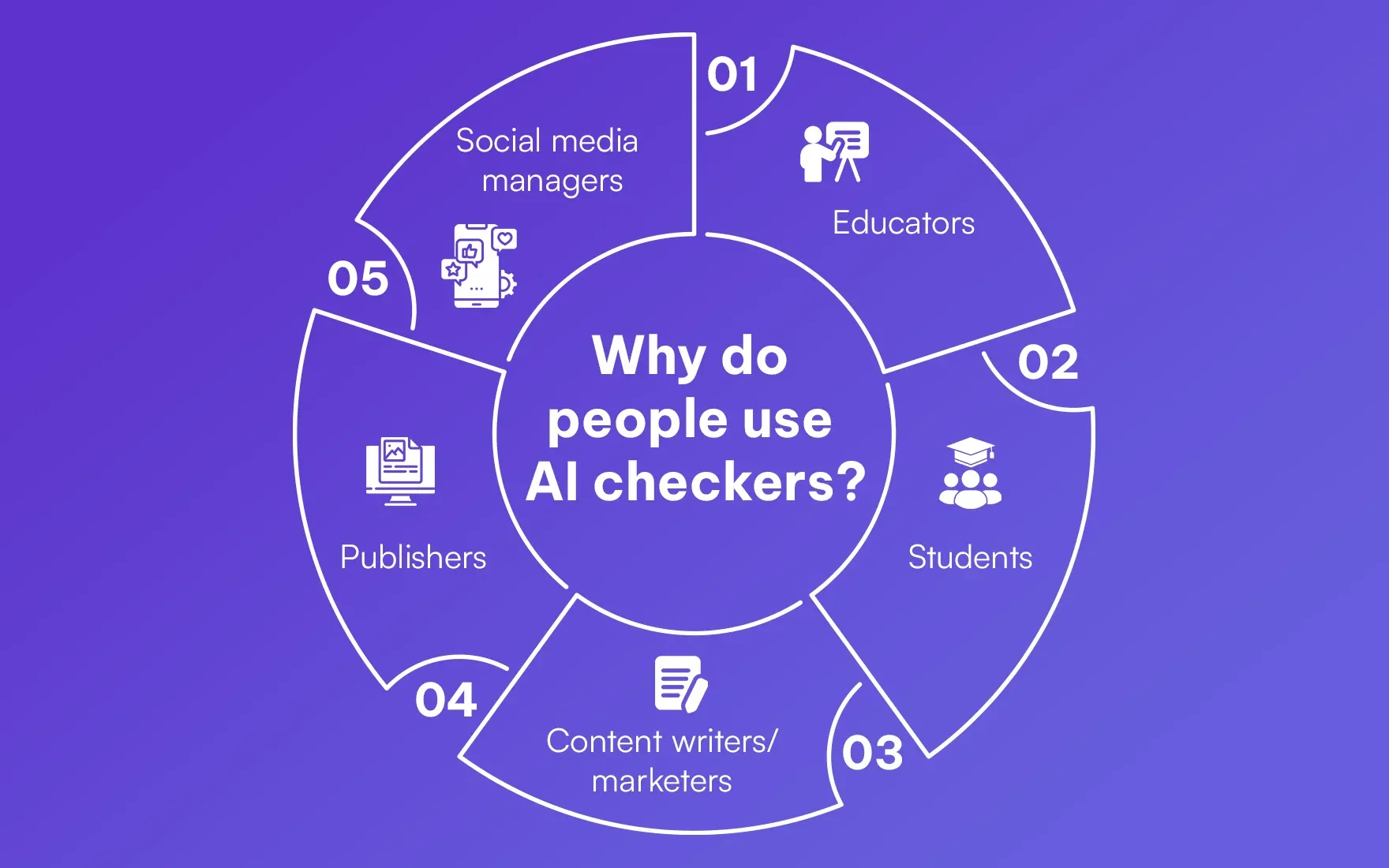
1. Educators
In education, it becomes imperative to use AI checkers and detectors to ensure accurate information in work done by a student. In a broader sense, this helps maintain academic integrity.
2. Students
Students use AI detectors to maintain academic integrity and identify areas where a human touch or fact-check might work better than AI tools.
3. Content writers/marketers
Content writers and marketers use AI tools to ensure that there is very little or no AI content in a marketing copy or a blog/article, so that it gets better attention from search engines.
4. Publishers
Publishers prefer to use AI detection tools so that the editorial standards are being met for any type of digital publications.
5. Social media managers
Social media managers use AI detection tools to ensure that content is appropriate, to ultimately fuel growth with authenticity and build trust.
How accurate are AI content detectors?
Since AI tools are developed using Large Language Models(LLMs), the accuracy of any AI detection tool depends on the type of data it has been trained on, different AI tools will have varying levels of sensitivity towards AI content detection.
Let’s understand how do AI detectors work:
4 ways AI content detection works
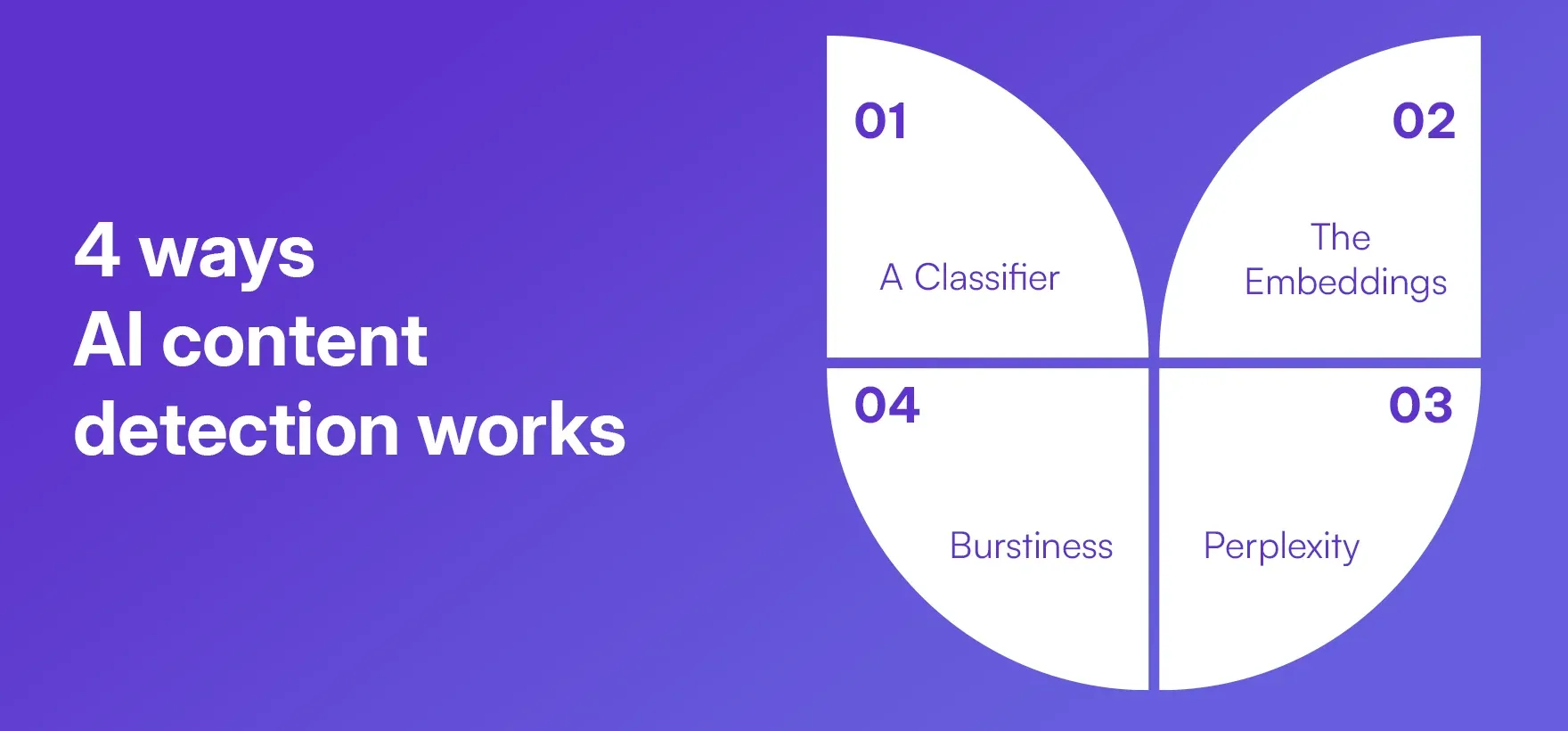
1. A Classifier
A classifier is essentially a MLM (Machine Learning Model) that is trained on a large number of datasets- both human-written and AI-generated. It is taught to differentiate between both those types of content- this is where it starts to classify content as AI-generated or human written.
2. The Embeddings
Embeddings can convert real-world objects into complex mathematical representations that are able to capture the relationships and properties between real-world data. It is fully automated and happens in four steps:
Word frequency analysis : This analyzes the number of times a particular word appears in a piece of content.
N-gram analysis : N-gram analysis is the process where large texts are broken down into smaller components; this helps to understand patterns, and learn to predict texts.
Syntactic analysis: This involves understanding the syntax, or grammatical structure of sentences.
Semantic analysis: Here, the focus is on understanding the meaning behind words and phrases. This is where context also comes into play and any inconsistencies are recognised.
3. Perplexity
Perplexity is a measure of how well any AI model can predict the next word. Lower perplexity means that it is more accurate, or less ‘perplexed’ by the input.
4. Burstiness
This relates to repeated words or overemphasis on some words throughout the content.
Are AI writing detectors reliable?
AI writing detectors are worthy of their name, they can detect patterns in content; however, they aren’t 100% dependable. This is because AI models are also evolving everyday, and the sensitivity levels of AI detectors are diverse.
Key technologies behind AI content detection
Machine learning
Machine learning involves teaching or training algorithms on pretty large datasets of human-written and AI-generated content to identify and characterize patterns and make predictions based on the same.
Natural language processing (NLP)
NLP is employed to detect the grammar, syntax, and semantics in text content. It essentially enables AI models to understand and communicate in human language.
Detecting AI writing manually
Manual detection of AI content is absolutely possible, however, it can get hectic, and time consuming. The primary hindrance to manual detection of AI is the elaborate amount of time required to check all the text, as well as any form of bias.
AI detection takes care of detecting such content in seconds, provided the how many words to detect ai question is sorted. And the results are always without any bias!
5 Examples of the best AI checkers
1. AIchecker pro
This provides highly Advanced AI content detection. It is their advanced AI algorithm content detector that ensures the text is AI-generated or not.
The platform provides in-depth reports, plagiarism checks, as well as integration with many known content management systems.
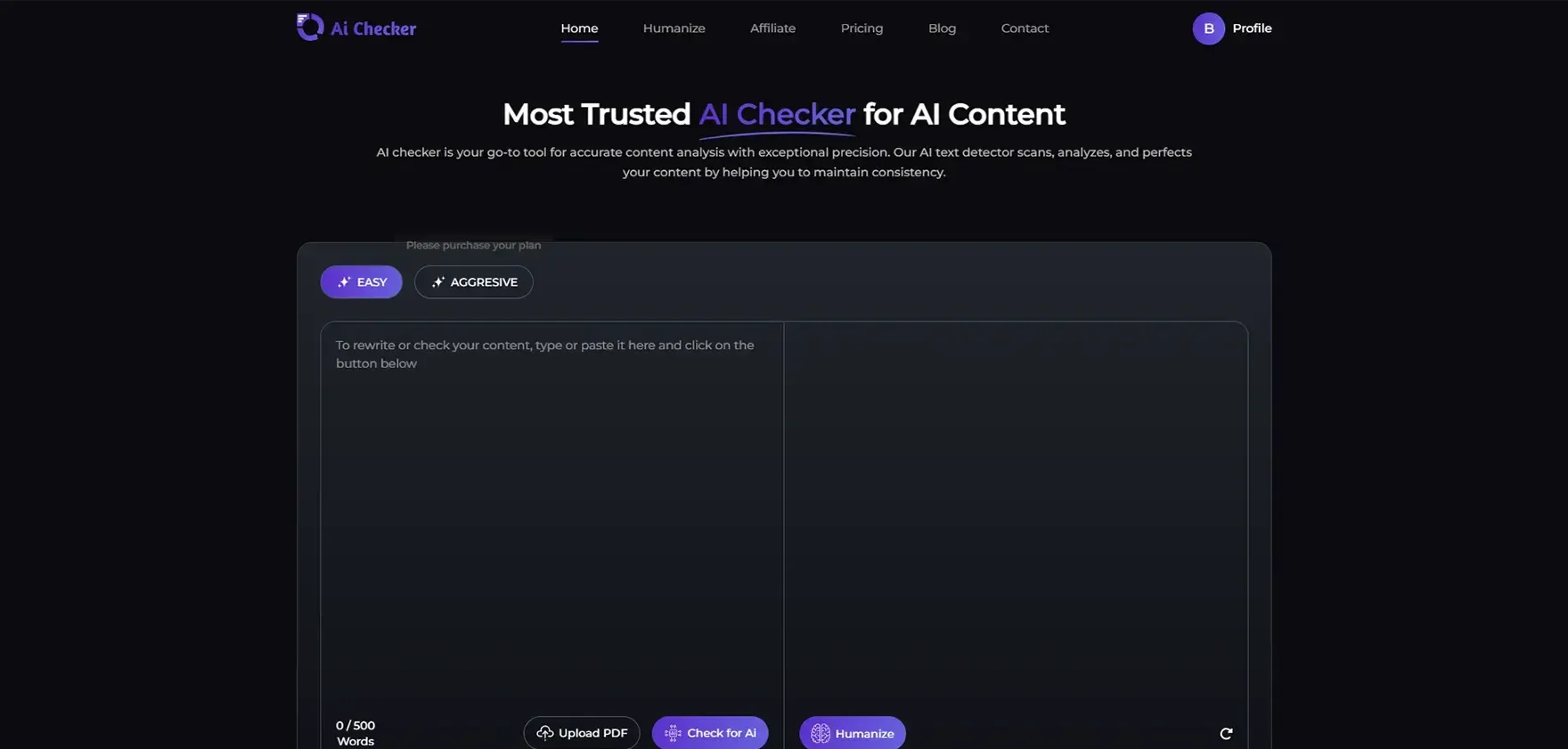
2. ZeroGPT
A powerful AI detector especially designed to detect GPT-3-type text along with other advanced language models. Its outcome is absolutely accurate and customizes according to specific use cases.
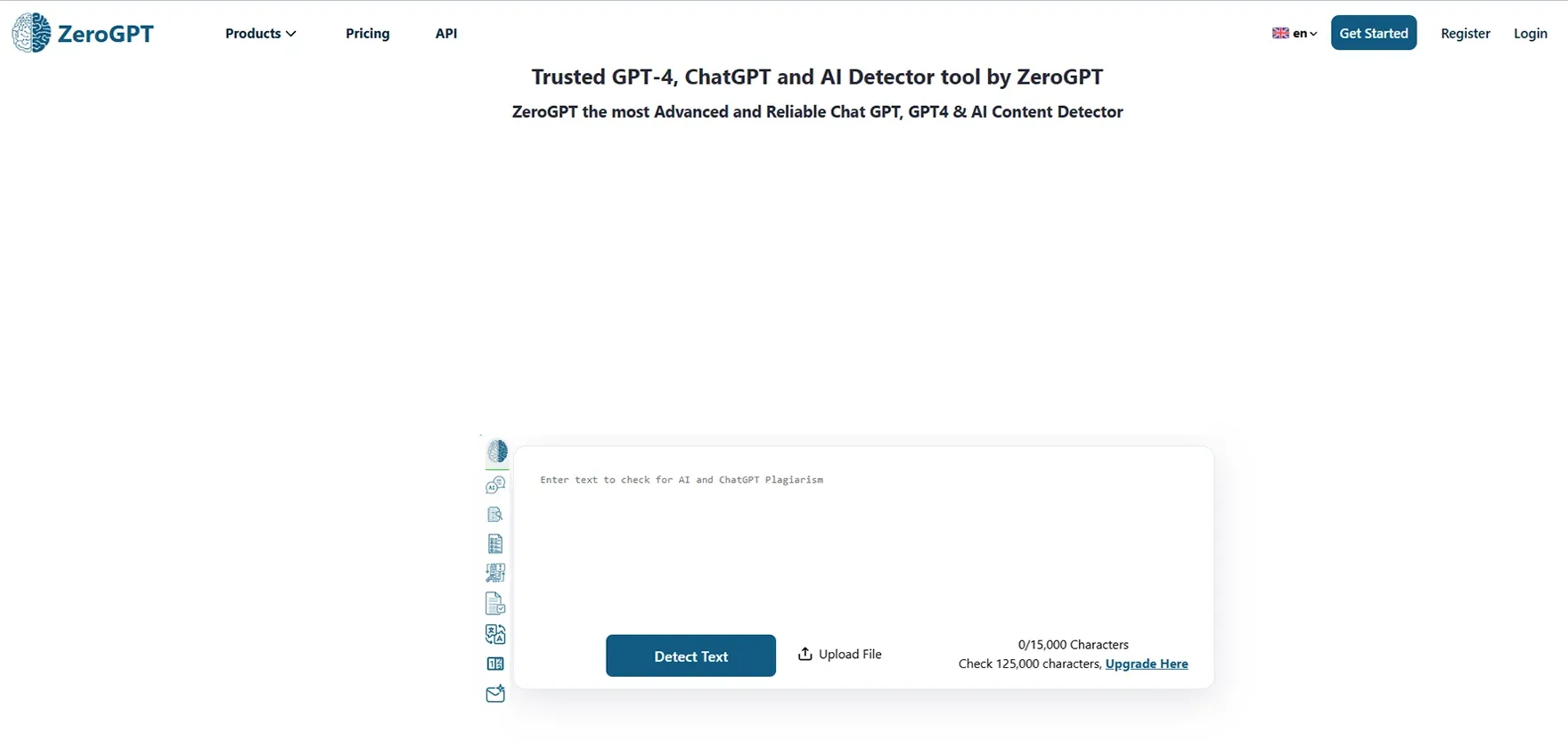
3. BrandWell
It is a plagiarism check tool merged with AI-based detection capabilities. It is quite user-friendly and integrates different tools for content generation.
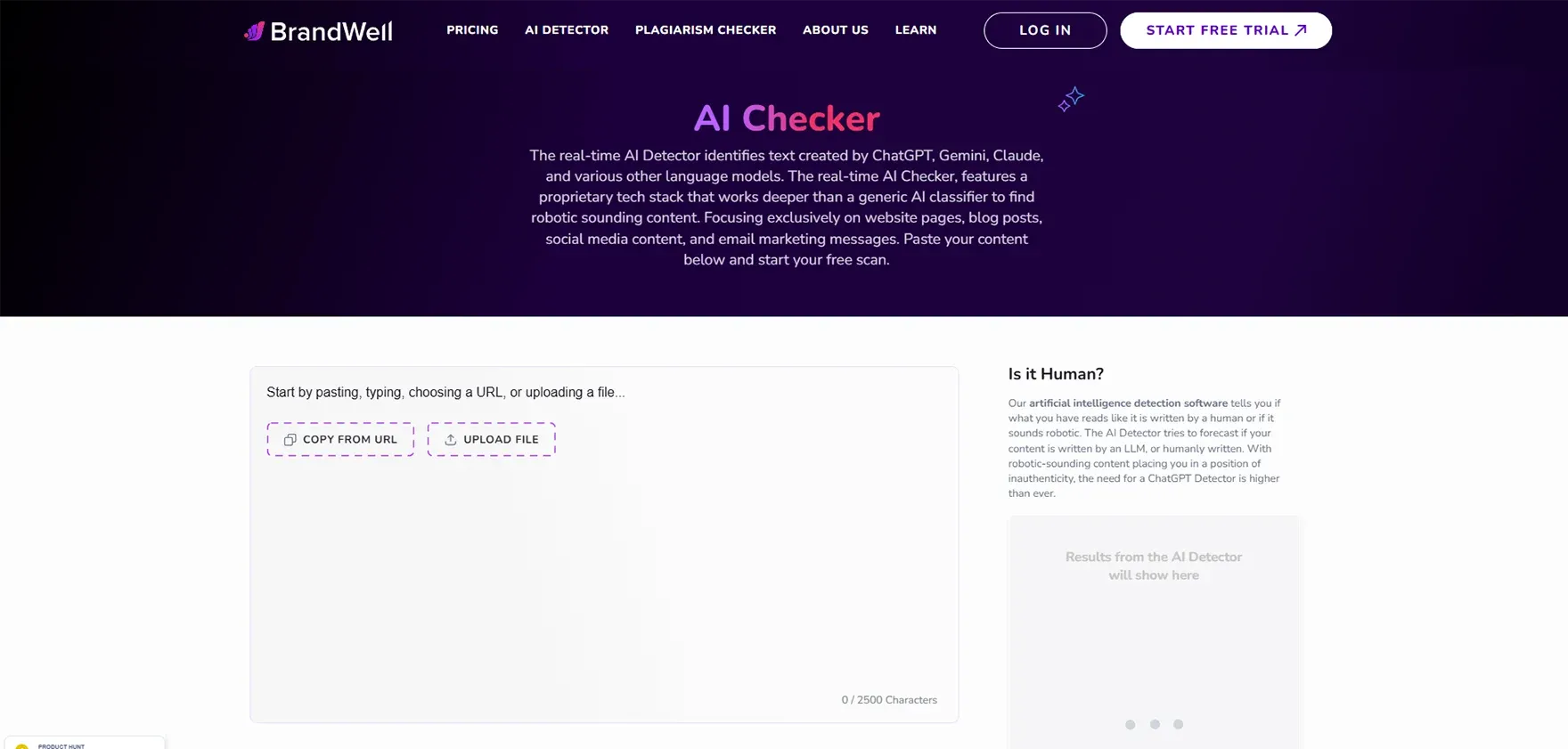
4. CopyLeaks
A multi-feature AI content detection tool that finds AI-generated text, plagiarism, and copyright infringement. Detailed reports and third-party integration with popular online platforms are also included.
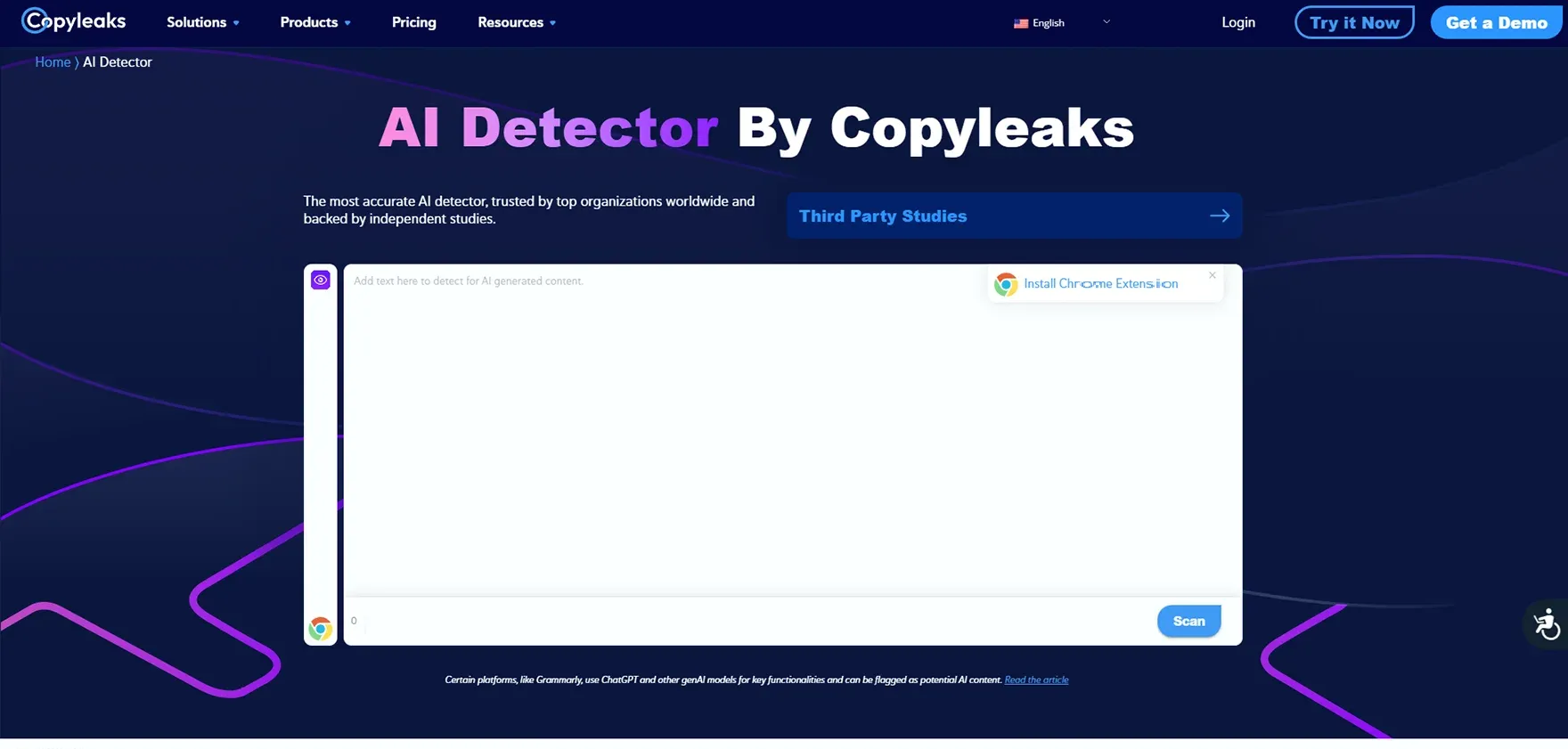
5. Smodin
This AI content detector and correction tool detects AI-generated content, suggests corrections to be done, and even plagiarism checks along with grammar checking.
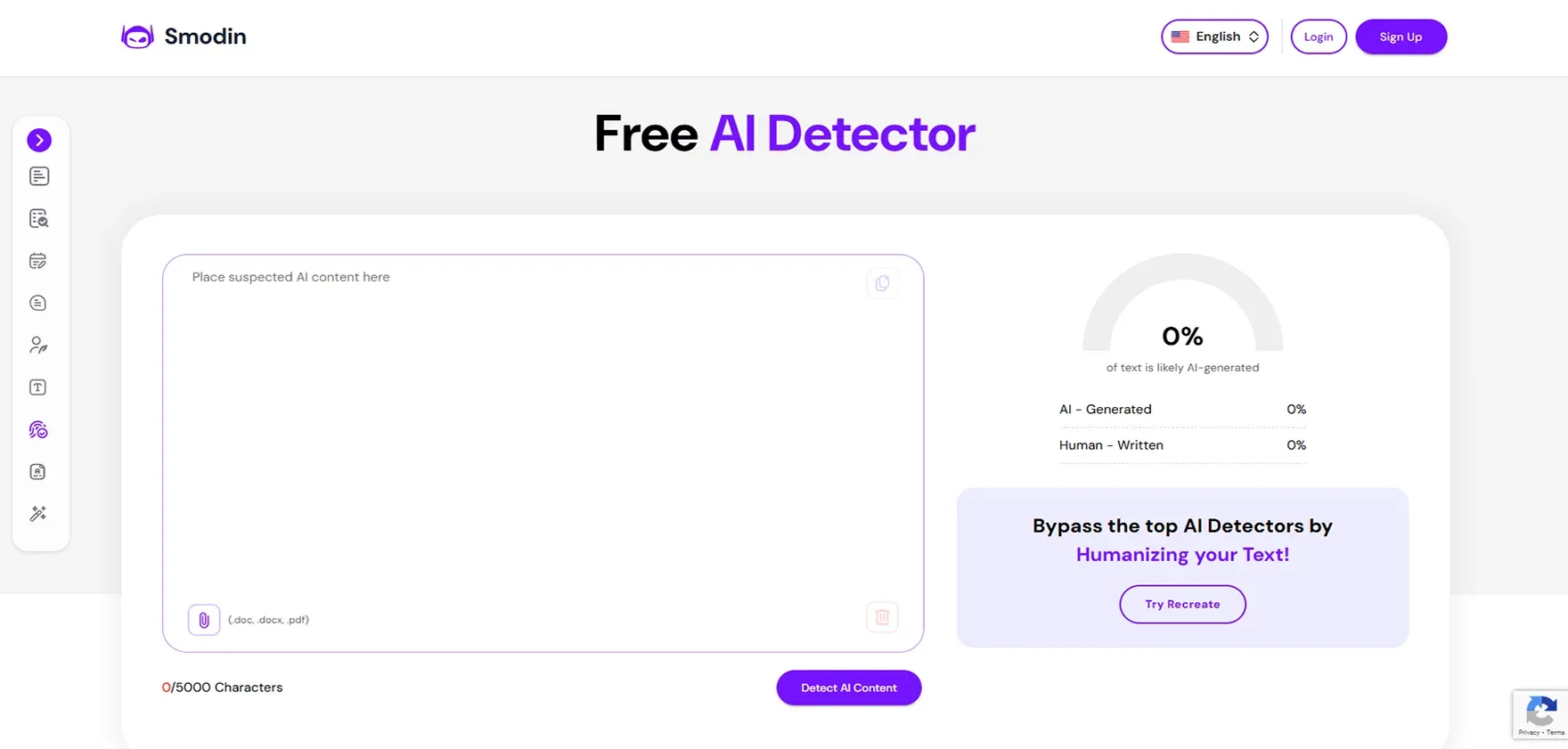
What is the future of AI checker tools?
The future of AI checker tools looks very promising. With the continuous evolution of AI detection tools, it is imperative that the need for AI detection tools will follow the need for sophisticated GenAI.
With better and improved accuracy, and real-time detection, these tools can be integrated with content creation platforms, making it easier to validate content.
Conclusion
AI content detection tools are becoming essential for maintaining integrity and originality of digital content.
Content detection tools like AI Checker Pro, along with other top tools like ZeroGPT and Content at Scale provide advanced detection by analyzing patterns, word usage, and text structure. These tools ensure that authenticity and integrity is always maintained in all types of content- from academia to creative professions.
As AI technology evolves, AI Checker Pro and similar tools will play a crucial role in identifying AI-generated content with even greater accuracy.
FAQs
1. How do AI checkers work?
AI checkers work by applying machine learning algorithms in text analysis and identifying patterns in text.
2. How accurate are AI detectors?
The accuracy of AI detectors depends on the kind of tool and how complex the particular piece of content is.
3. Can AI detectors detect all forms of AI-generated content?
Some AI detectors may fail to detect AI-generated content of higher sophistication that bears much resemblance to human writing.

Nathan Porter
Content writer at @Aichecker
I am a content writer at AI Checker Pro, where I craft engaging, SEO-optimized content to enhance brand visibility and educate users about our AI-driven solutions. My role involves creating clear, impactful messaging across digital platforms to drive engagement and support company growth.


